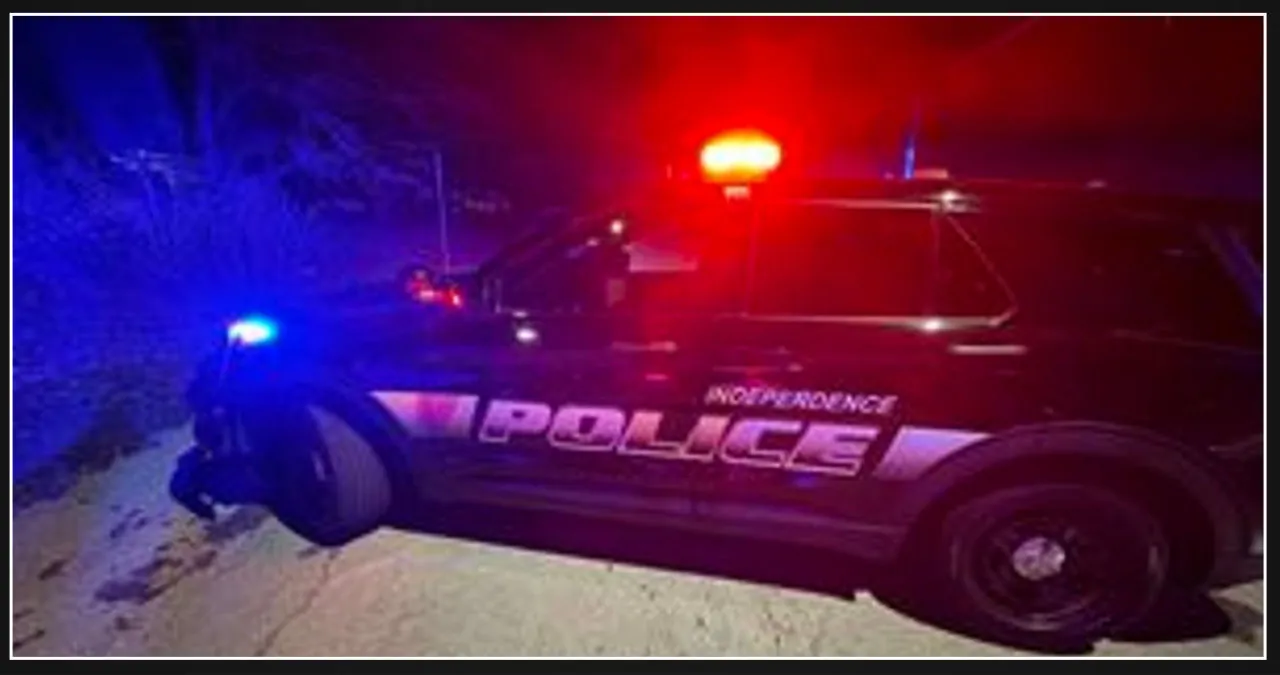The Derby school district near Wichita has recently made a decision to reject a proposed social studies curriculum for high school students. The reason behind this rejection is the district’s concern regarding potential bias against Republican President-elect Donald Trump in some of the curriculum materials.
The newly elected conservative majority on the Derby Board of Education rejected a contract proposal with Houghton Mifflin Harcourt for the high school curriculum. The proposed contract, which had a price tag of approximately $400,000, was voted down.
Derby High School teachers, after conducting a thorough review of six social studies programs, have recommended the curriculum.
Several board members expressed their concerns regarding the publisher’s website containing anti-racism statements, as well as the company’s statements on diversity, equity, and inclusion. They also pointed out that certain sections of a textbook and online materials do not accurately represent the achievements and actions of Trump during his first presidency.
Cathy Boote, a board member, expressed her significant concern regarding what she refers to as bias of omission.
According to Boote, there are various instances where the material fails to represent Trump’s actions during his presidency correctly. She highlights areas such as his position on Cuba, trade agreements with China, alliances with other countries, and the events of the Jan. 6 Capitol riot.
Boote, with her fingers making air quotes, highlighted the issue of the ‘Muslim ban’. She pointed out that it was often misunderstood, as it was not directed towards all Muslim countries but specifically towards those that lacked proper vetting capabilities.
According to her, the primary concern was safety. However, they chose to leave it there without any explanation, leading one to believe that he had xenophobic tendencies.
In January 2017, President Trump signed an executive order that halted all travel and immigration from seven predominantly Muslim countries. This action came after Trump had previously advocated for a “total and complete shutdown” of Muslims entering the United States during his first term campaign.
Derby board member Michael Blankenship expressed his concern regarding the points raised by Boote. He also disagreed with the new curriculum due to a statement made by Houghton Mifflin Harcourt following the tragic murder of George Floyd, an African American, by a white police officer in 2020.
“We stand in solidarity with the Black Lives Matter movement. We are committed to promoting social justice and advocating for equal access to education,” the company expressed in a message published on its website in June 2020. “We recognize the need for reform in the education system and will actively contribute to the transformation through our platform.”
Blankenship expressed his surprise and curiosity at the bold statement made. He emphasized the importance of understanding the meaning behind it, as he still remains uncertain about its implications.
On Tuesday, it was not possible to reach representatives from Houghton Mifflin Harcourt, a Boston-based company, for comment.
In response to concerns raised by Derby school board members about an elementary social studies curriculum two years ago, a company representative reassured them that the company stands by its statement and is committed to supporting efforts towards diversity.
According to company spokeswoman Leah Riviere, the statement was not meant to be political. Instead, it was intended to convey the company’s concern and support for Black members of their community, including teachers, students, families, and employees.
“HMH remains neutral and does not endorse any particular ideology, political group, or agenda. Our primary goal is to assist teachers in their teaching efforts and facilitate students’ learning.”
The Derby school board gave its approval to the Houghton Mifflin Harcourt elementary curriculum in 2022. Following this, the board witnessed the election of four new members, resulting in a conservative majority of 4-3.
Teachers’ Perspectives:
Teachers have varying opinions on the matter. Some believe that technology in the classroom is a valuable tool that enhances the learning experience. They argue that it provides students with access to a wealth of information and resources that they wouldn’t otherwise have. With technology, students can delve deeper into subjects, conduct research, and collaborate with their peers. It also allows for personalized learning, as students can progress at their own pace and explore topics that interest them.
On the other hand, there are teachers who express concerns about the excessive use of technology in the classroom. They worry that it may hinder students’ social skills and ability to communicate effectively. Some teachers also feel that technology can be a distraction, with students easily getting sidetracked by games, social media, or other non-academic content. Additionally, there are concerns about the potential for cheating or plagiarism facilitated by technology.
Overall, the opinions of teachers on technology in the classroom are diverse. Some embrace it as a valuable educational tool, while others express reservations about its impact on students’ social skills and academic integrity. As with any tool, it is important to strike a balance and use technology in a way that enhances the learning experience without compromising other important aspects of education.
The administrators at Derby were determined to introduce a new curriculum for the high school. They felt compelled to take action as the teachers had been struggling without social studies textbooks and other essential materials for an extended period of time.
Teachers who have tested the Houghton Mifflin Harcourt curriculum expressed their appreciation for a specific aspect called the “Writable” portion. This particular feature places emphasis on critical thinking and writing skills.
Kendall Warkentine, a social studies teacher at Derby High School, expressed her enthusiasm for the Houghton Mifflin Harcourt curriculum, stating that it has the potential to greatly benefit students’ writing abilities. She believes that this curriculum will be a valuable tool that can be effectively utilized in the classroom.
According to Warkentine, high school history classes tend to overlook events that occurred after the 2000 presidential election of George W. Bush. Historians generally do not consider the past two decades as historical.
According to Holly Putnam-Jackson, Derby’s assistant superintendent of teaching and learning, the proposed curriculum is in line with the Kansas academic standards for history, government, and social studies.
According to the speaker, students at our institution are encouraged to cultivate critical thinking skills. They are taught not to simply accept information they come across on social media, news outlets, or from their peers without questioning its validity. Instead, they are encouraged to conduct research, verify sources, and form their own informed opinions.
“Our social studies teachers have a goal of teaching our students how to think critically, rather than dictating what to think.”
Three Derby board members, namely Mark Boline, Tanya Jacobucci, and Melanie Turner, have given their approval to the proposed high school curriculum. However, the majority, consisting of Boote, Blankenship, Jennifer Neel, and Robyn Pearman, have rejected the proposal.
According to Jacobucci, she has confidence in the teachers who tested the curriculum to determine what is effective in the classroom.
“I am not okay with the fact that we are asking our teachers to bring their best choice and the one they believe will do the best job, only to tell them to find a different option,” she expressed her disagreement.
Boline passionately urged the board to accept the teachers’ recommendation.
“It feels quite paternalistic tonight, this curriculum decision, and I can’t imagine it being well-received by the hardworking teachers,” expressed Boline.
The Derby decision reflects the ongoing discussions surrounding curriculum control and the teaching of sensitive or political subjects in educational institutions.
Florida education officials have recently made the decision to reject a significant number of social studies textbooks. The reason for this rejection is primarily due to concerns surrounding certain topics related to social justice and American exceptionalism. This move follows a similar rejection two years ago, where 41% of mathematics textbooks were rejected by the officials. The rejection was justified by citing “attempts to indoctrinate students” as the main issue with the rejected textbooks.
Textbook publishers have had to revise their content in order to meet state standards.
In Kansas, curriculum and textbook decisions are made by local school boards, rather than the state.
After the Derby vote, Neel, the board president, instructed administrators to search for alternative textbooks and materials, as well as teachers who would be open to experimenting with them.
Neel expressed the need to take a step back and explore alternative options before making any hasty decisions. He emphasized the importance of finding better choices or allowing certain situations to settle down. Neel advised that once two favorable and unbiased products are identified, it would be wise to reconsider the matter.
Suzanne Perez covers education for KMUW in Wichita and the Kansas News Service. You can stay updated with her on Twitter @SuzPerezICT.
The Kansas News Service is a collective effort by KCUR, Kansas Public Radio, KMUW, and High Plains Public Radio. It primarily focuses on health, the social determinants of health, and how these factors are intertwined with public policy.







